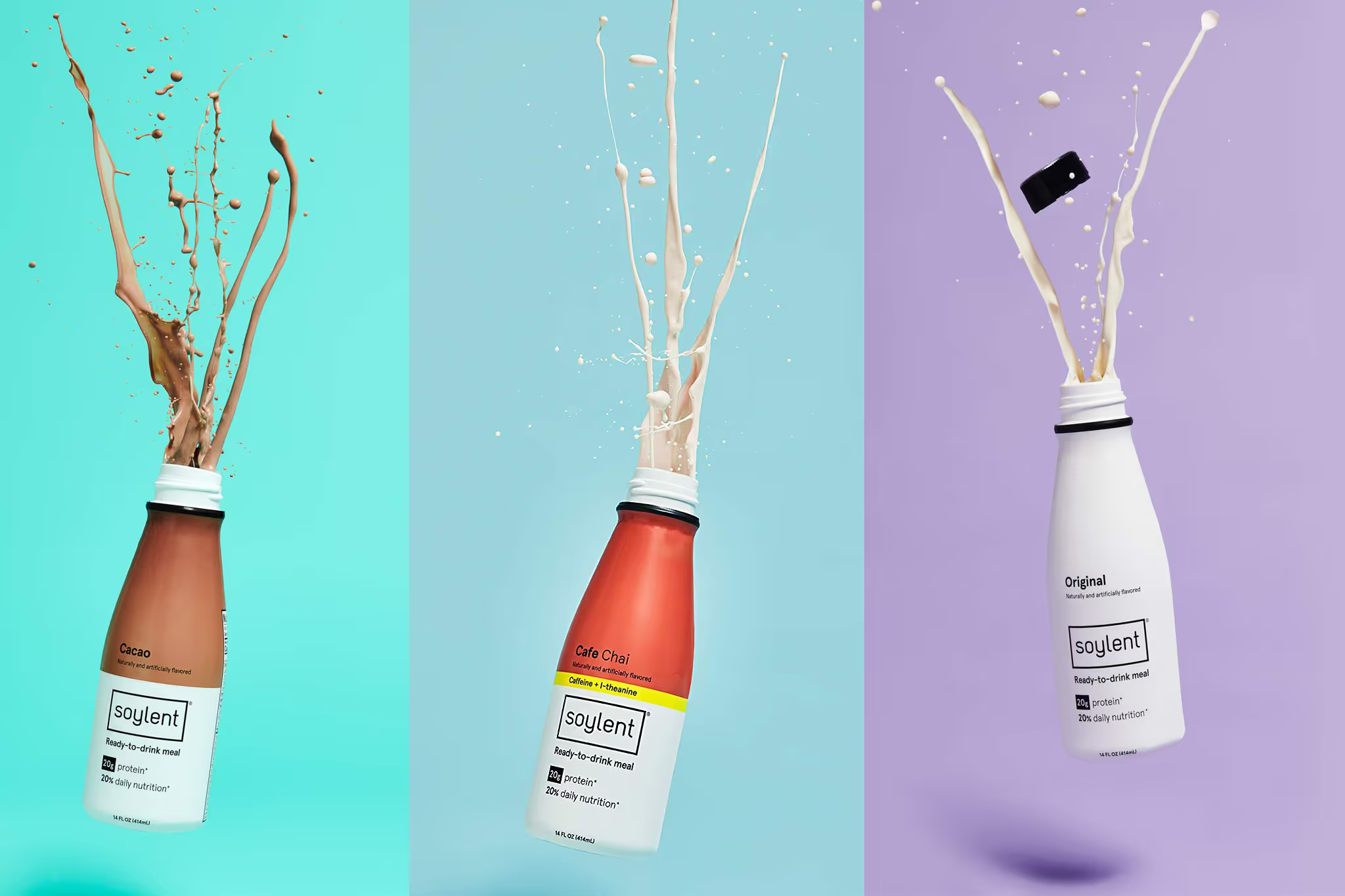

























.png)

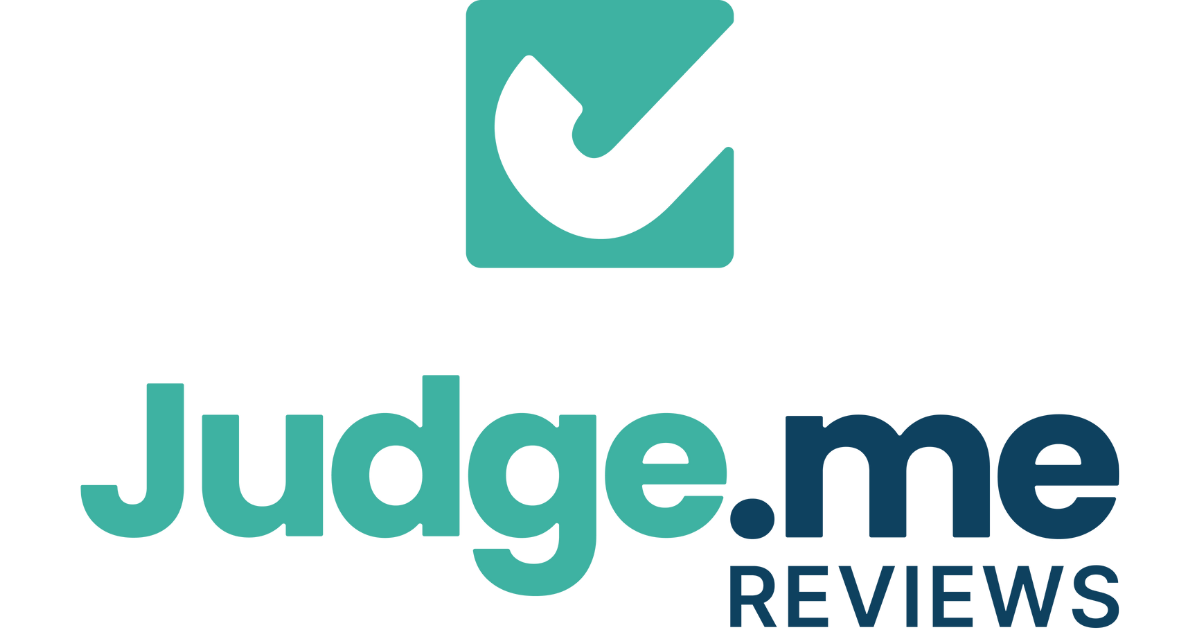




Soylent started with the basic idea that complete nutrition shouldn’t be difficult or expensive. Co-founders Rob Rhinehart, Matt Cauble, John Coogan, and David Renteln, all software engineers, first developed Solylent as an experiment in 2013. Their hypothesis: Food can be simplified for the better.
Since then, Soylent has gone on to be stocked at over 30,000 stores across the US and Canada, created viral press (like this), and has a range of drinks, powders and bars to save time, aid weight management, replace meals and increase nutrition intake.
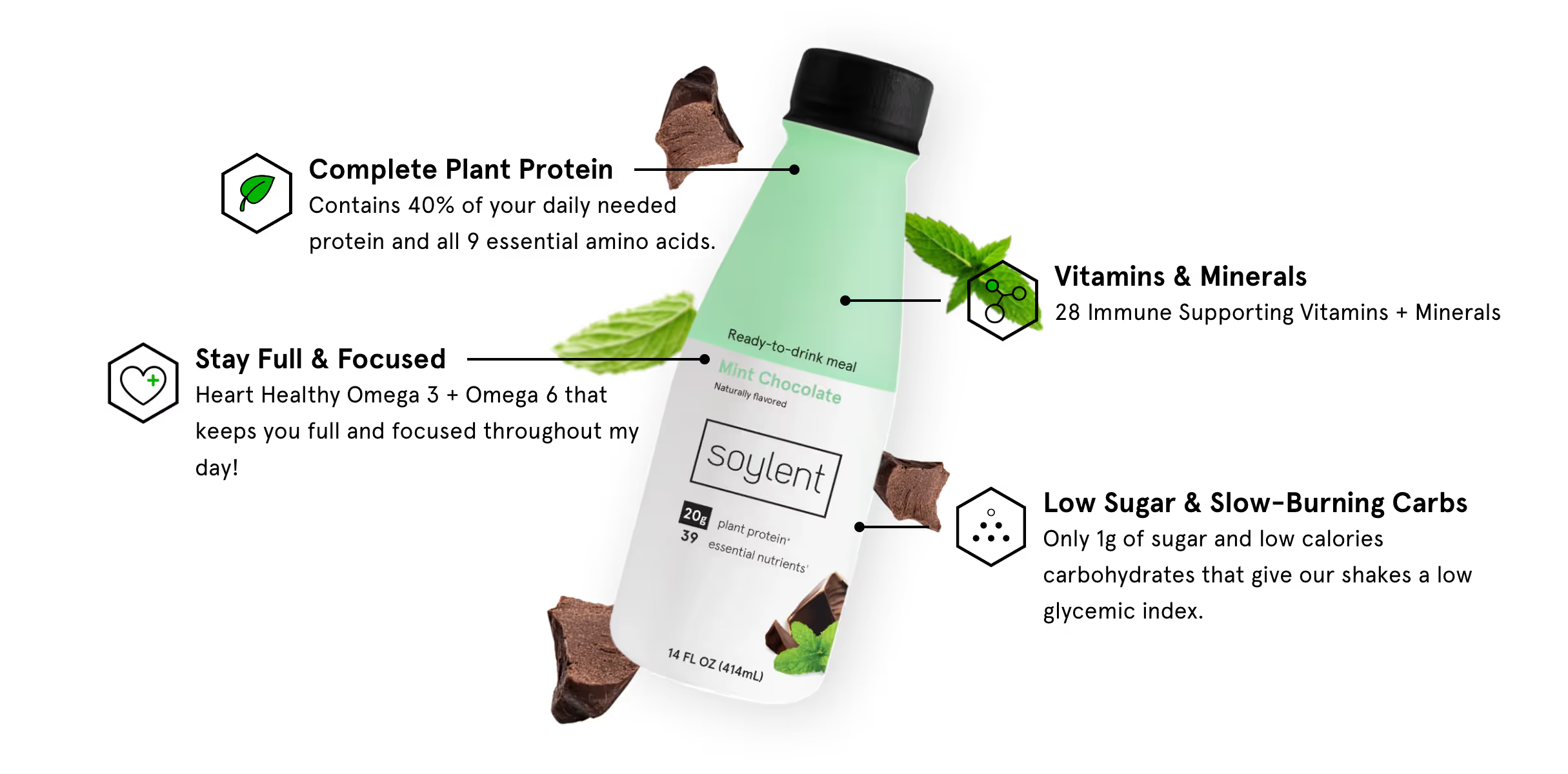
Soylent’s product range is inherently habitual. The products hold a core position in their consumers' diet and lifestyle alongside other traditional staples. This habitual nature provided both a great opportunity and challenge for Soylent to introduce their current customers to other product offerings that aligned with their lifestyle. For example, how could they effectively introduce their Complete Energy or Cafe product offering as an alternative to coffee to customers that already loved their core range? Soylent knew this would have a large impact on both serving their customers better and increasing their repeat revenue rates.
Commenting on the problems Soylent faced before using Relo, Director of E-Commerce, Domenica Herrick, said:
Soylent’s original cross-sell approach leveraged the out-of-the-box functionality of Klaviyo. This allowed Soylent to get something going fairly easily to help introduce their current customers to other product offerings, but didn’t offer the customer experience that Soylent was after:
Soylent used Relo’s unique functionality to introduce their customers to their other product ranges in 2 main ways:
Firstly, Soylent synced Relo to their Shopify to automatically generate predictions for when their customers were receptive to trying something new, and which product they may be interested in. These predictions were built on a per customer basis, taking into account the product each customer ordered previously, the amount of product order, the number of orders they’ve had previously and any seasonality changes:

Relo then automatically synced those predictions straight to Soylent Klaviyo dashboard, immediately making them actionable and driving revenue straight away:
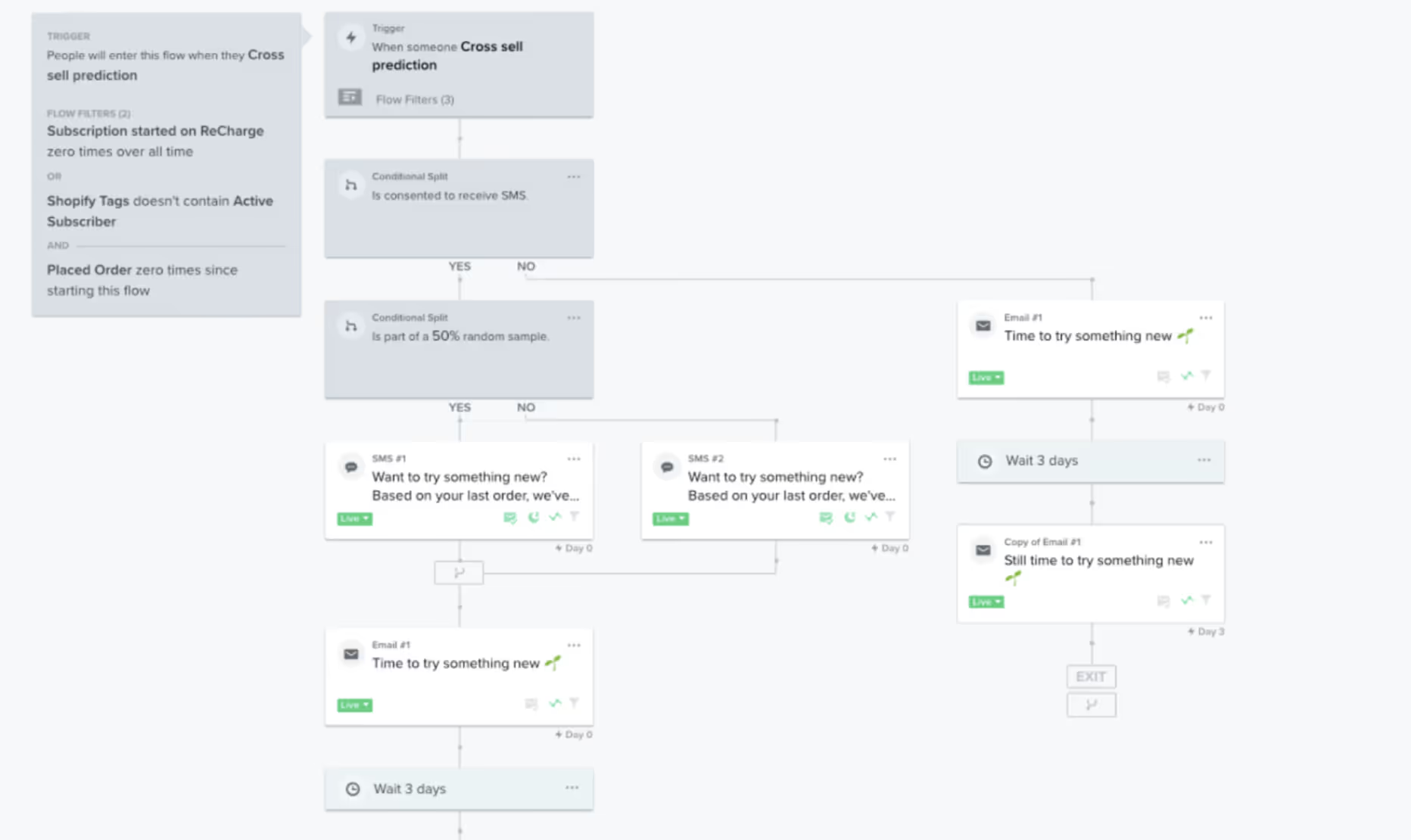
Here’s an example of how Soylent used the Relo cross-sell predictions and spun up an easy flow. Each product offering is customized to each customer, as shown on the right hand side of the Klaviyo preview. In this instance, Relo has predicted that based on Tim’s previous order history, they would be receptive to trying Soylent Drink Banana:
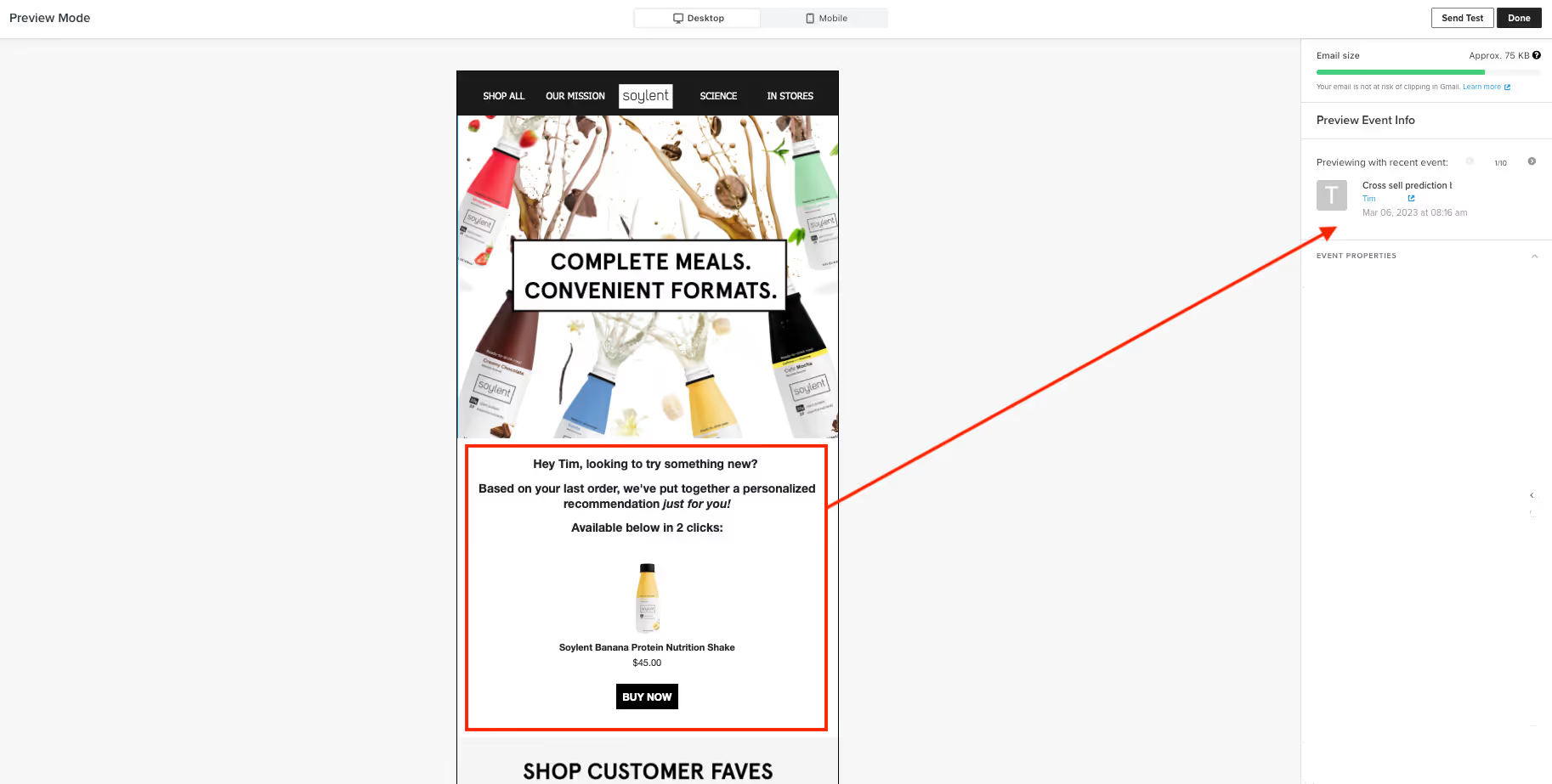
Lastly, Soylent added Relo’s unique Magic Cart Feature to reduce all friction for a customer to purchase. Magic Cart is a hyper-optimized mobile-first landing page that is personalized to each individual customer. Magic cart is

1-month after Soylent introduced Relo, the results speak for themselves. In this time period, Soylent was able to add a whole new best-performing repeat revenue stream to their Klaviyo set-up and achieve a 4x ROI.
With these changes, Soylent was able to dramatically increase their repeat revenue and Klaviyo efficiency. Not only did they achieve a 4x ROI through a whole new revenue stream, but by introducing their customers to their wider collection of products, Soylent are now able to build on that discovery and increase further purchases in the future.